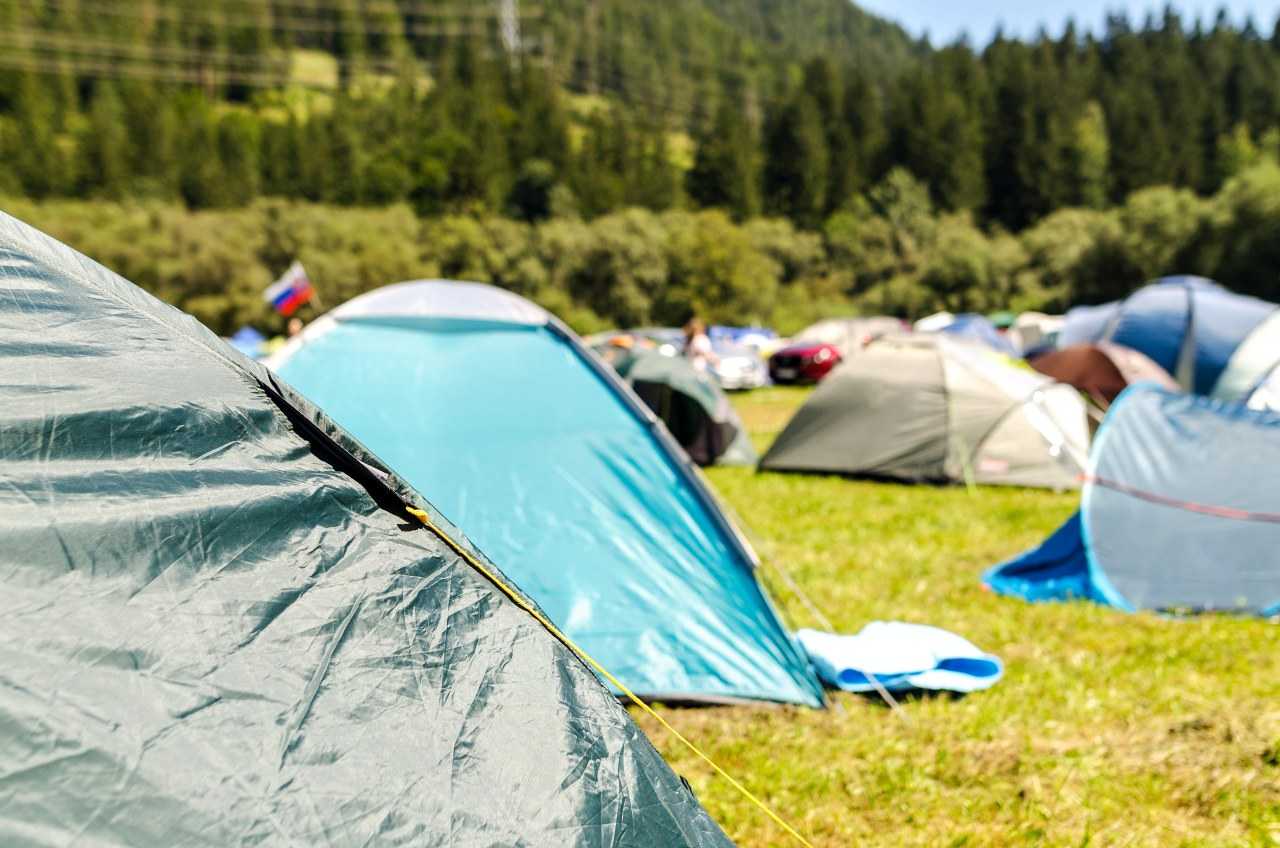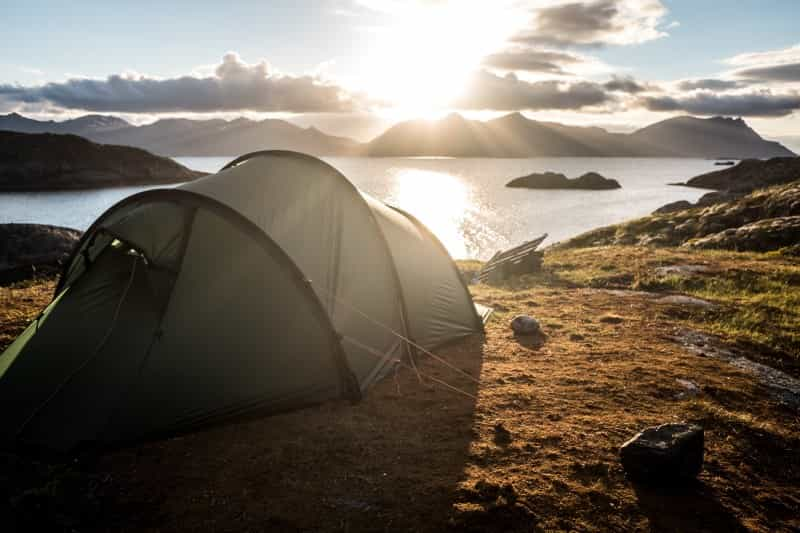Camping restrictions
A stress-free camping holiday is all about feeling prepared. Whether you’re a first-time camper or uncertain about common etiquette on campsites, the rules are simple to follow once you know what to expect. If you’re going wild camping for the first time instead, you’ll want to be similarly well prepared – it’s not as simple as putting down roots anywhere you like, due to country- and area-specific laws for wild campers.

Covid-19 camping restrictions
Since early 2020, Covid-19 has introduced some additional restrictions to camping. To keep up to date with the most recent regulations, visit our dedicated guide to Covid-19 camping.
Rules on a campsite
Every campsite has different rules, so you should check the specific conditions before travelling and when you arrive at the campsite. However, there are some common dos and don’ts for most camping trips.
1. Drive slowly and carefully.
Some campsites might have a specific speed limit, which is usually around 5mph or 10mph. However the general rule is that guests should always drive slowly and carefully around any campsite. This is because children, dogs or even wild animals could be passing or playing around the tracks and fields. The heavy footfall on most campsites means that drivers should be vigilant at all times.
2. Respect other guests’ privacy.
While you may want to socialise and chat to other guests on the campsite, always be sure to respect their privacy. This means not intruding upon their private space or pitch unless you’re invited, avoiding walking through other people’s pitches when you walk to campsite facilities such as the toilets, and being polite and courteous in all communal spaces.
3. Keep to your pitch’s boundaries.
Part of respecting other guests’ privacy is respecting the boundaries of their pitch. If there's space, keep a distance of around six metres between your tent and your neighbours’ pitches when you set up camp, and check that your guy lines are contained within your pitch’s boundaries.
4. Keep the campsite tidy.
Being clean and tidy doesn’t only apply to your personal space. It also applies to the entire campsite. Guests should dispose of rubbish in the bins provided (or bag up rubbish and keep it out of sight if there aren’t any available), clear away any used firepits or barbecues and leave any campsite facilities such as toilets or washing-up areas clean and tidy.
5. Keep quiet during the night.
Sleep is important to any camper, especially families with children, so it’s an unspoken rule that campsite guests keep as quiet as possible during the night, especially after 9pm. This includes refraining from playing loud music, shouting and singing or playing musical instruments. Other noises that could disturb other campers include technology such as mobile phones or TVs, and even the sound of car doors or boots slamming.
6. Handle firepits and barbecues safely.
Some campsites don’t permit firepits at all or they may have specific conditions as to how, when and where they can be used. Wherever you are, you should know how to build a campfire safely and follow the rules for campfires in the area you’re holidaying in.
Avoid flammable liquids, keep a safe distance away from the flames, monitor children and pets closely and make sure that that fires are properly extinguished after use.
7. Monitor children closely.
There are a couple of reasons why you should keep a close eye on children on a campsite: the first is that they could get lost or hurt, and the second is that they can easily disturb other guests. Children can be prone to invading other campers’ personal space, taking toys or damaging equipment when they’re unsupervised – all things you’ll want to avoid.
8. Supervise and clean up after any pets.
Even if you’re on a pet-friendly campsite, you might find that some campers are frightened of dogs. This means that dogs should always be kept under close supervision, ideally on a lead. Doing this also means you can prevent dogs from getting lost, escaping or chasing wild animals such as rabbits or deer.
Another important part of supervising your pet is picking up their litter in appropriate doggie bags and disposing of them in a designated bin.
Wild camping restrictions
Wild camping means pitching your tent in wild landscapes and spaces where there aren’t any designated campsites. There are specific rules for wild camping in different countries – including in Wales, England, Scotland and around Europe – so you should always research the laws for the country and the area that you will be visiting.

In Scotland, the Land Reform (Scotland) Act 2003 allows anyone to camp on most types of open land. There are, however, some restrictions for wild campers in specific areas of Scotland such as Loch Lomond in high season, so always research your destination in advance.
All wild campers in Scotland must follow the Scottish Outdoor Access code, which includes rules such as showing respect for the interests of the public, looking after the environment and taking responsibility for your personal actions.
In England, Wales and Northern Ireland, meanwhile, it is illegal to camp on private land or property without permission from landowners, including farmland. There are some exceptions, including sections of Dartmoor National Park where you can legally wild camp. Elsewhere, you will need to request permission from the relevant landowner before it’s legal to pitch up.
Countries outside of the UK have their own wild camping laws, so always research country- and area-specific rules and regulations in advance. For more detailed guidance on wild camping, including how to track down a wild camping pitch and more specific rules, check out our complete guide to wild camping.
What are the wild camping rules for motorhomes and campervans?
The wild camping rules in England, Wales and Northern Ireland also apply to motorhomes and caravans. Rules for motor vehicles in Scotland are stricter than for tents, because the Land Reform (Scotland) Act 2003 only applies to non-motorised vehicles and vessels. That means wild campers residing in a motor vehicle in Scotland will legally need the landowner’s permission.
For other camping hacks and tricks, browse our guides to camping for beginners or camping abroad.